Starvation
History
Odin & Wolfgang, a pair of 4 month old male rats.
The rats were 6 weeks of age and in good health at the time of their placement. They did well at their new home until the owner had to move and could not take the rats.
The new caretaker was not familiar, nor interested, in rat care. Finally, the caretaker noticed they were not well and returned them to the breeder, saying that they were sick and would not eat.
Further conversation determined that their food dish, although full, had noting edible in it. The caretaker had topped it off and didn’t realize after a time that the remains were only shells and other components of the mix that the rats could not eat.
Clinical signs
Both rats were extremely thin and weak. They were about half the size of normal 4-month-old rats and had no apparent muscle tone. Neither one of them could walk or stand without assistance. During effort to try to hold up their heads shaking was noticed.
The black rat, Wolfgang, had his penis stuck outside of his sheath. Neither rat had apparent developed testicles.
Diagnosis
Severe emaciation (Starvation)
Treatment
Both rats were given IV fluids, vitamins, and antibiotics by the vet. They were then put in a carrier with a heating pad for warmth. Initial feedings occurred every two hours and consisted of ensure, pedialyte, yogurt, baby food, and pudding.
Outcome
Wolfgang, the black rat, slowly gained weight and became healthy. His fur became thick and shiny, he filled out, his testicles dropped, and he showed no apparent long term effects of his ordeal.
Odin was humanely euthanized on the third day of treatment by recommendation of the veterinarian. His systems were shutting down.
Consulting Veterinarian
Dr. Richard Mckinniss DVM, South Seminole Animal Hospital- Fern Park, FL.
Additional Comments
As nutrition is withheld, and after the body uses up its own stores, it begins to break down muscle and organ tissue for energy and survival.
All systems are affected by starvation. Blood temperature drops as does temperature and respiratory rate. Eventually there is permanent damage to the organs, particularly to the heart and to the kidneys. Often starvation results in heart or kidney failure and death.
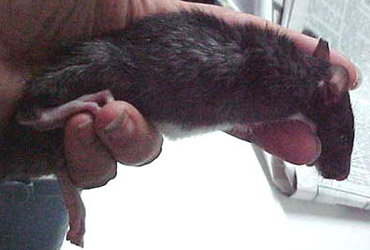 Photo 1: Wolfgang on the first day of treatment for starvation. |
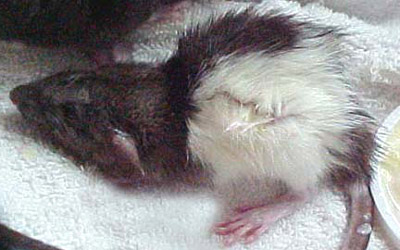 Photo 2: Odin, when set down, could only balance for a few seconds before falling over. The most severe of the two, his eyes are dull and his fur is sparse and rough. |
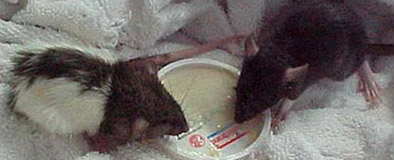 Photo 3: Propped up by towels, both rats would struggle to eat small amounts of well needed food and fluids. |
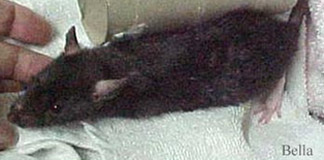 Photo 4: The body mass and size of the rats was less than 50% of a normal 4-month-old rat. Muscle tone was almost entirely lacking. Both rats were limp and lethargic. |
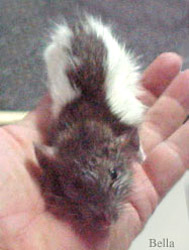 Photo 5: Odin too damaged by the starvation to recover. |
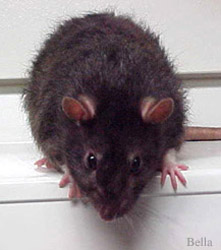 Photo 6: This is Wolfgang one year after he and his cage mate were treated for starvation, you can see that this fellow did recover well. He lived to be 2 years old. |
An additional article regarding starvation and abandonment can be viewed on the RMCA site. It is in pdf form and a printable format has been provided. Visit the Rescue page at: Rat & Mouse Club of America, or for direct viewing of pdf file see: https://www.rmca.org/Rescue/sadies_story.pdf


